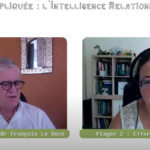En cessant de concevoir notre monde intérieur comme un bloc, le modèle IFS lui donne du relief, des contours, des formes, des couleurs, des visages, du mouvement. Il admet une vérité que nous percevons tous sans l’accepter : nous somme pluriels, c’est à dire constitués d’un très grand nombre de parties (ou parts). Plus que des sous-personnalités, des manifestations d’un ego multifacettes ; plus que des rôles, des fictions, des états émotionnels, des traits de caractère, les parties désignent de véritables entités, assimilables à des personnes intérieures à part entière, profondes et complexes, capables de relations.
Dans cet article, il s’agit de vous donner un aperçu des différentes catégories de parties qui sont en nous, ainsi que de leur richesse.
Exilé
Partie mise à l’écart car de nature à mettre en péril l’équilibre du système, grâce à l’action d’autres parts, appelées protecteurs. On distingue différentes familles d’exilés : ceux qui sont chargés de souffrances, qui renferment la mémoire d’un traumatisme, ceux chargés d’une mémoire transgénérationnelle (qui porte un traumatisme transmis de génération en génération), et ceux qui portent des qualités dont l’expression est interdite (par exemple, une sensibilité artistique trop marquée dans une famille où seule compte les valeurs de réussite matérielle).
Protecteur
Part de la personne qui, suite à une expérience traumatique, s’est chargée d’un rôle de protection qui vise à éviter à la personne de faire l’expérience de la souffrance. On en distingue de deux types, selon leurs modalités d’action : les managers, qui agissent par anticipation, et les pompiers, qui interviennent à la moindre alerte, de façon rétroactive. Ils ont en commun d’avoir une intention positive pour le système (même si leurs comportements peuvent se révéler problématiques) et d’être dominés par leurs peurs. L’intention positive insiste à vouloir protéger la personne (de dangers extérieurs ou de ses exilés, parties chargées de fardeaux qu’elles maintiennent hors du champ de conscience), mais elles s’opposent sur la stratégie à adopter, ce qui est de nature à les entraîner dans une relation conflictuelles, où l’un cherche à prendre le dessus sur l’autre. Ce type de relation est appelé polarisation, souvent éprouvée par la personne sous la forme d’un dilemme.
Manager
Part qui exerce un rôle protecteur. Cherchant la sécurité et la stabilité, les managers tentent d’exercer un contrôle sur le système intérieur et l’environnement, le conjoint, les enfants, les collègues de bureau… Leur but est d’éviter à la personne de se retrouver dans des situations où elle pourrait éprouver des sentiments négatifs, de l’angoisse, venant le plus souvent des exilés et de leurs fardeaux. Ces personnages intérieurs sont des parts de nous souvent reconnues et valorisées socialement : le planificateur doué pour organiser des fêtes entre amis, l’altruiste toujours prompt à aider, ou encore le juge, doué d’un grand sens du discernement, le séducteur qui sait capter l’attention d’un auditoire… Leurs talents deviennent contre-productifs quand, dominés par leurs peurs, ils tombent dans l’excès, et de vigilants ils deviennent méfiants de tout et rigides, et peuvent aller jusqu’à faire subir leur loi tyrannique à la personne et à son entourage.
Pompier
Part qui, comme le manager, exerce un rôle protecteur. Comme les managers, les pompiers ont pour intention de créer de la sécurité. S’ils sentent que celle-ci est menacée, par l’émergence par exemple d’une émotion intense, d’une angoisse, souvent en lien avec l’émergence d’un exilé, ils interviennent sur le champ pour éteindre l’incendie émotionnel sur le point d’embraser la personne, comme le feraient des pompiers. Leur mode d’intervention se confond le plus souvent avec des comportements qui nous coupent des situations, comme la rêverie, la distraction. Ils peuvent contribuer à la mise en place, de dépendances (alcool, tabac, jeu, achats compulsifs, boulimie) ou à des comportements extrêmes comme l’automutilation et finalement le suicide.
Self
Centre du système, il ne convient pas de le représenter comme une instance fixe de la personne, un super-Moi conscient. Il s’agit plutôt d’une qualité de présence au monde et à soi, une disposition de l’être qui apparaît par élimination des contraintes qui pèsent sur lui, à mesure que les parts acceptent de se décoller de la personne, lui laissant ainsi plus d’espace pour son déploiement et d’autorisation pour sa mise en jeu. Cette disposition d’être permet aux personnes d’entrer facilement en relation avec leur monde intérieur et de le pacifier. Le Self se manifeste à la personne comme qualité d’énergie : curiosité, compassion, calme, confiance, créativité, connexion, courage, mais aussi la présence, sens de la perspective, patience, persévérance. Ce sont les qualités qu’il est demandé au thérapeute IFS de pouvoir mettre à la disposition de son patient dans la relation thérapeutique. La personne qui fait pleinement l’expérience de son Self a la capacité de guérir les parts blessées en elle.
Le modèle Intelligence Relationnelle® reconnaît la multiplicité du psychisme selon la représentation du modèle Internal Family Systems, en particulier cette catégorisation en trois sous-types à côté du Self. L’une des spécificités du modèle Intelligence Relationnelle® reposant la mise en jeu du Self relationnel avec le thérapeute et celui du thérapeute lui-même, il se trouve que dans les séances, les protecteurs (managers ou pompiers) trouvent rapidement un espace de sécurité qui leur permettent de se détendre en trouvant la satisfaction de leurs besoins. Leurs manifestations caractéristiques en tant que telles sont donc moins repérables. Le travail avec les défenses pychiques reste une dimension primordiale dans le travail en Intelligence Relationnelle®
Référence : Le Doze, François, and Christian Krumb. La force de la confiance: une thérapie pour s’unifier. Paris: © O. Jacob, 2015.









